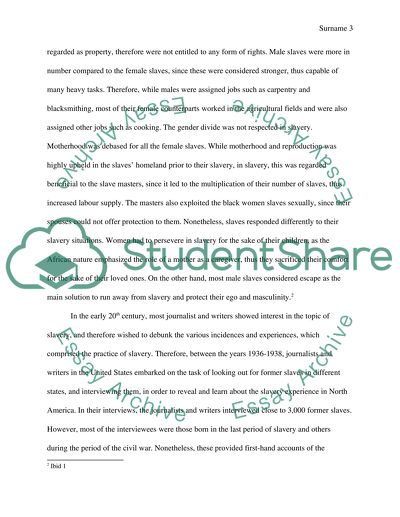Cite this document
(“Slave experience in north america Research Paper”, n.d.)
Slave experience in north america Research Paper. Retrieved from https://studentshare.org/history/1478099-slave-experience-in-north-america
Slave experience in north america Research Paper. Retrieved from https://studentshare.org/history/1478099-slave-experience-in-north-america
(Slave Experience in North America Research Paper)
Slave Experience in North America Research Paper. https://studentshare.org/history/1478099-slave-experience-in-north-america.
Slave Experience in North America Research Paper. https://studentshare.org/history/1478099-slave-experience-in-north-america.
“Slave Experience in North America Research Paper”, n.d. https://studentshare.org/history/1478099-slave-experience-in-north-america.


